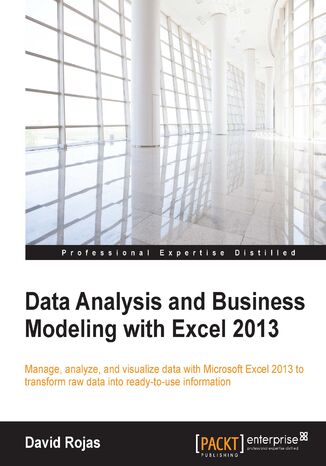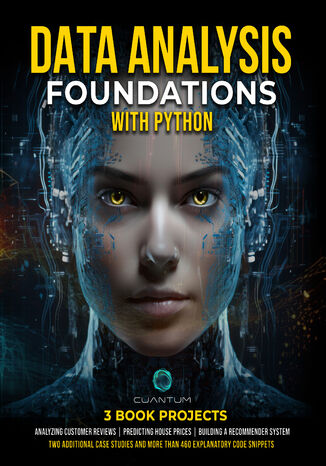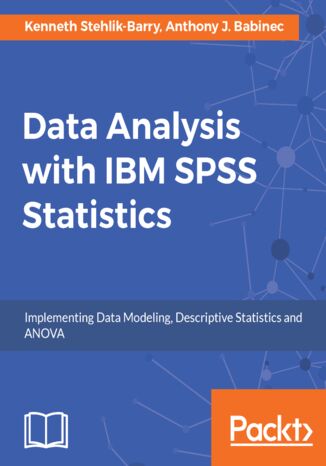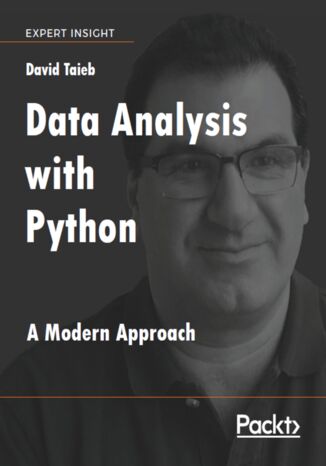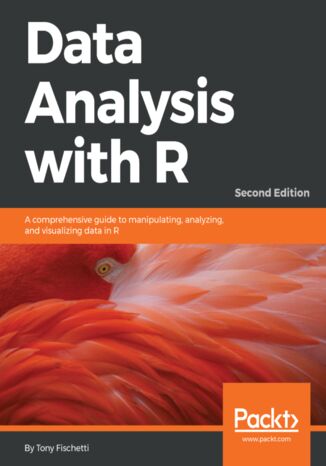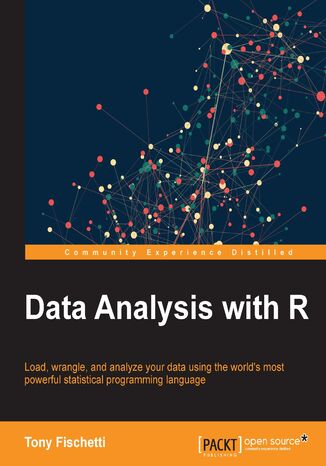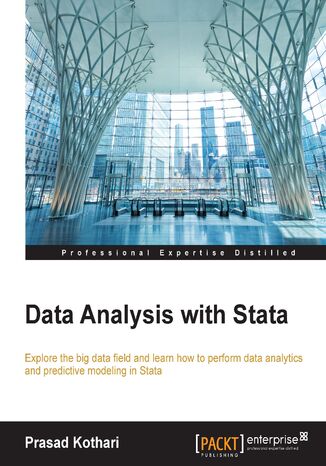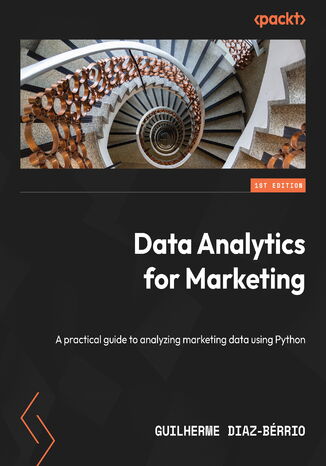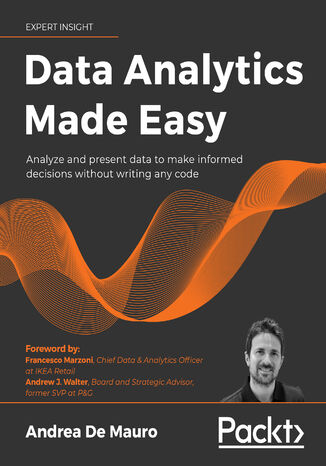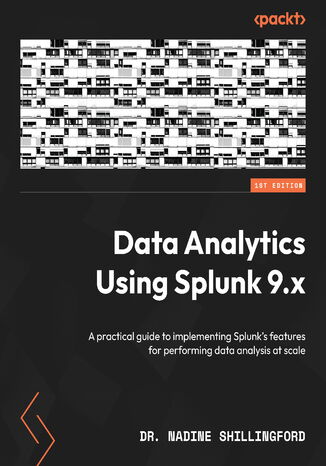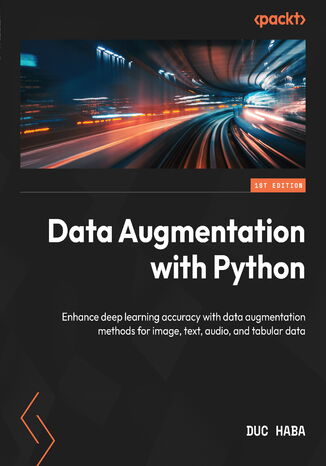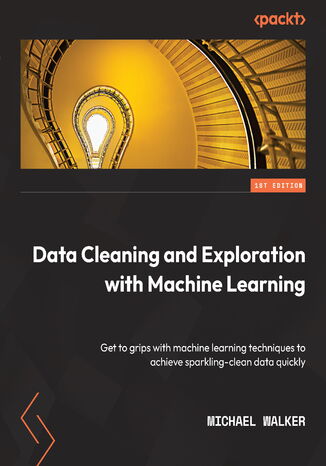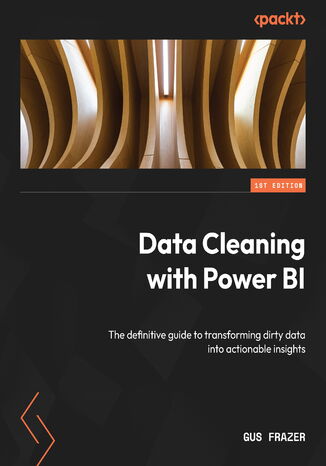Категорії
Електронні книги
-
Бізнес та економіка
- Біткойн
- Ділова жінка
- Коучинг
- Контроль
- Електронний бізнес
- Економіка
- Фінанси
- Фондова біржа та інвестиції
- Особисті компетенції
- Комп'ютер в офісі
- Комунікація та переговори
- Малий бізнес
- Маркетинг
- Мотивація
- Мультимедійне навчання
- Нерухомість
- Переконання та НЛП
- Податки
- Соціальна політика
- Порадники
- Презентації
- Лідерство
- Зв'язки з громадськістю
- Звіти, аналізи
- Секрет
- Соціальні засоби комунікації
- Продаж
- Стартап
- Ваша кар'єра
- Управління
- Управління проектами
- Людські ресурси (HR)
-
Для дітей
-
Для молоді
-
Освіта
-
Енциклопедії, словники
-
Електронна преса
- Architektura i wnętrza
- Безпека життєдіяльності
- Biznes i Ekonomia
- Будинок та сад
- Електронний бізнес
- Ekonomia i finanse
- Езотерика
- Фінанси
- Особисті фінанси
- Бізнес
- Фотографія
- Інформатика
- Відділ кадрів та оплата праці
- Для жінок
- Комп'ютери, Excel
- Бухгалтерія
- Культура та література
- Наукові та академічні
- Охорона навколишнього середовища
- Впливові
- Освіта
- Податки
- Подорожі
- Психологія
- Релігія
- Сільське господарство
- Ринок книг і преси
- Транспорт та спедиція
- Здоров'я та краса
-
Історія
-
Інформатика
- Офісні застосунки
- Бази даних
- Біоінформатика
- Бізнес ІТ
- CAD/CAM
- Digital Lifestyle
- DTP
- Електроніка
- Цифрова фотографія
- Комп'ютерна графіка
- Ігри
- Хакування
- Hardware
- IT w ekonomii
- Наукові пакети
- Шкільні підручники
- Основи комп'ютера
- Програмування
- Мобільне програмування
- Інтернет-сервери
- Комп'ютерні мережі
- Стартап
- Операційні системи
- Штучний інтелект
- Технологія для дітей
- Вебмайстерність
-
Інше
-
Іноземні мови
-
Культура та мистецтво
-
Шкільні читанки
-
Література
- Антології
- Балада
- Біографії та автобіографії
- Для дорослих
- Драми
- Журнали, щоденники, листи
- Епос, епопея
- Нарис
- Наукова фантастика та фантастика
- Фельєтони
- Художня література
- Гумор, сатира
- Інше
- Класичний
- Кримінальний роман
- Нехудожня література
- Художня література
- Mity i legendy
- Лауреати Нобелівської премії
- Новели
- Побутовий роман
- Okultyzm i magia
- Оповідання
- Спогади
- Подорожі
- Оповідна поезія
- Поезія
- Політика
- Науково-популярна
- Роман
- Історичний роман
- Проза
- Пригодницька
- Журналістика
- Роман-репортаж
- Romans i literatura obyczajowa
- Сенсація
- Трилер, жах
- Інтерв'ю та спогади
-
Природничі науки
-
Соціальні науки
-
Шкільні підручники
-
Науково-популярна та академічна
- Археологія
- Bibliotekoznawstwo
- Кінознавство / Теорія кіно
- Філологія
- Польська філологія
- Філософія
- Finanse i bankowość
- Географія
- Економіка
- Торгівля. Світова економіка
- Історія та археологія
- Історія мистецтва і архітектури
- Культурологія
- Мовознавство
- літературні студії
- Логістика
- Математика
- Ліки
- Гуманітарні науки
- Педагогіка
- Навчальні засоби
- Науково-популярна
- Інше
- Психологія
- Соціологія
- Театральні студії
- Богослов’я
- Економічні теорії та науки
- Transport i spedycja
- Фізичне виховання
- Zarządzanie i marketing
-
Порадники
-
Ігрові посібники
-
Професійні та спеціальні порадники
-
Юридична
- Безпека життєдіяльності
- Історія
- Дорожній кодекс. Водійські права
- Юридичні науки
- Охорона здоров'я
- Загальне, компендіум
- Академічні підручники
- Інше
- Закон про будівництво і житло
- Цивільне право
- Фінансове право
- Господарське право
- Господарське та комерційне право
- Кримінальний закон
- Кримінальне право. Кримінальні злочини. Кримінологія
- Міжнародне право
- Міжнародне та іноземне право
- Закон про охорону здоров'я
- Закон про освіту
- Податкове право
- Трудове право та законодавство про соціальне забезпечення
- Громадське, конституційне та адміністративне право
- Кодекс про шлюб і сім'ю
- Аграрне право
- Соціальне право, трудове право
- Законодавство Євросоюзу
- Промисловість
- Сільське господарство та захист навколишнього середовища
- Словники та енциклопедії
- Державні закупівлі
- Управління
-
Путівники та подорожі
- Африка
- Альбоми
- Південна Америка
- Центральна та Північна Америка
- Австралія, Нова Зеландія, Океанія
- Австрія
- Азії
- Балкани
- Близький Схід
- Болгарія
- Китай
- Хорватія
- Чеська Республіка
- Данія
- Єгипет
- Естонія
- Європа
- Франція
- Гори
- Греція
- Іспанія
- Нідерланди
- Ісландія
- Литва
- Латвія
- Mapy, Plany miast, Atlasy
- Мініпутівники
- Німеччина
- Норвегія
- Активні подорожі
- Польща
- Португалія
- Інше
- Przewodniki po hotelach i restauracjach
- Росія
- Румунія
- Словаччина
- Словенія
- Швейцарія
- Швеція
- Світ
- Туреччина
- Україна
- Угорщина
- Велика Британія
- Італія
-
Психологія
- Філософія життя
- Kompetencje psychospołeczne
- Міжособистісне спілкування
- Mindfulness
- Загальне
- Переконання та НЛП
- Академічна психологія
- Психологія душі та розуму
- Психологія праці
- Relacje i związki
- Батьківство та дитяча психологія
- Вирішення проблем
- Інтелектуальний розвиток
- Секрет
- Сексуальність
- Спокушання
- Зовнішній вигляд та імідж
- Філософія життя
-
Релігія
-
Спорт, фітнес, дієти
-
Техніка і механіка
Аудіокниги
-
Бізнес та економіка
- Біткойн
- Ділова жінка
- Коучинг
- Контроль
- Електронний бізнес
- Економіка
- Фінанси
- Фондова біржа та інвестиції
- Особисті компетенції
- Комунікація та переговори
- Малий бізнес
- Маркетинг
- Мотивація
- Нерухомість
- Переконання та НЛП
- Податки
- Соціальна політика
- Порадники
- Презентації
- Лідерство
- Зв'язки з громадськістю
- Секрет
- Соціальні засоби комунікації
- Продаж
- Стартап
- Ваша кар'єра
- Управління
- Управління проектами
- Людські ресурси (HR)
-
Для дітей
-
Для молоді
-
Освіта
-
Енциклопедії, словники
-
Електронна преса
-
Історія
-
Інформатика
-
Інше
-
Іноземні мови
-
Культура та мистецтво
-
Шкільні читанки
-
Література
- Антології
- Балада
- Біографії та автобіографії
- Для дорослих
- Драми
- Журнали, щоденники, листи
- Епос, епопея
- Нарис
- Наукова фантастика та фантастика
- Фельєтони
- Художня література
- Гумор, сатира
- Інше
- Класичний
- Кримінальний роман
- Нехудожня література
- Художня література
- Mity i legendy
- Лауреати Нобелівської премії
- Новели
- Побутовий роман
- Okultyzm i magia
- Оповідання
- Спогади
- Подорожі
- Поезія
- Політика
- Науково-популярна
- Роман
- Історичний роман
- Проза
- Пригодницька
- Журналістика
- Роман-репортаж
- Romans i literatura obyczajowa
- Сенсація
- Трилер, жах
- Інтерв'ю та спогади
-
Природничі науки
-
Соціальні науки
-
Науково-популярна та академічна
-
Порадники
-
Професійні та спеціальні порадники
-
Юридична
-
Путівники та подорожі
-
Психологія
- Філософія життя
- Міжособистісне спілкування
- Mindfulness
- Загальне
- Переконання та НЛП
- Академічна психологія
- Психологія душі та розуму
- Психологія праці
- Relacje i związki
- Батьківство та дитяча психологія
- Вирішення проблем
- Інтелектуальний розвиток
- Секрет
- Сексуальність
- Спокушання
- Зовнішній вигляд та імідж
- Філософія життя
-
Релігія
-
Спорт, фітнес, дієти
-
Техніка і механіка
Відеокурси
-
Бази даних
-
Big Data
-
Biznes, ekonomia i marketing
-
Кібербезпека
-
Data Science
-
DevOps
-
Для дітей
-
Електроніка
-
Графіка / Відео / CAX
-
Ігри
-
Microsoft Office
-
Інструменти розробки
-
Програмування
-
Особистісний розвиток
-
Комп'ютерні мережі
-
Операційні системи
-
Тестування програмного забезпечення
-
Мобільні пристрої
-
UX/UI
-
Веброзробка, Web development
-
Управління
Подкасти
Data Analysis for Business Decisions. A Laboratory Manual
Mercury Learning and Information, Andres Fortino
This manual is for business analysts to enhance their statistical analysis skills, with case studies focusing mainly on Excel. It covers basic descriptive techniques, linear regression, forecasting, t-Test, chi-square, A/B testing, text data analysis, and Big Data management. Companion files include solution spreadsheets, sample files, and data sets.The course starts with data shaping and cleaning, installing the Analysis ToolPak, and descriptive statistics. It progresses through histograms, scatter plots, Pareto analysis, correlation, linear and multivariate regression, and forecasting. Advanced topics include inferential statistics, contingency analysis, and A/B testing. The final chapters cover text analytics, big data sets, and data visualization.These techniques are crucial for informed business decisions. This book guides users from basic to advanced analysis, blending theory with practical skills. Companion files enhance learning, making this manual essential for mastering statistical analysis in business.
Embark on a comprehensive journey through data analysis with Python. Begin with an introduction to data analysis and Python, setting a strong foundation before delving into Python programming basics. Learn to set up your data analysis environment, ensuring you have the necessary tools and libraries at your fingertips. As you progress, gain proficiency in NumPy for numerical operations and Pandas for data manipulation, mastering the skills to handle and transform data efficiently.Proceed to data visualization with Matplotlib and Seaborn, where you'll create insightful visualizations to uncover patterns and trends. Understand the core principles of exploratory data analysis (EDA) and data preprocessing, preparing your data for robust analysis. Explore probability theory and hypothesis testing to make data-driven conclusions and get introduced to the fundamentals of machine learning. Delve into supervised and unsupervised learning techniques, laying the groundwork for predictive modeling.To solidify your knowledge, engage with two practical case studies: sales data analysis and social media sentiment analysis. These real-world applications will demonstrate best practices and provide valuable tips for your data analysis projects.
Data Analysis with IBM SPSS Statistics. Implementing data modeling, descriptive statistics and ANOVA
Ken Stehlik-Barry, Anthony Babinec
SPSS Statistics is a software package used for logical batched and non-batched statistical analysis. Analytical tools such as SPSS can readily provide even a novice user with an overwhelming amount of information and a broad range of options for analyzing patterns in the data. The journey starts with installing and configuring SPSS Statistics for first use and exploring the data to understand its potential (as well as its limitations). Use the right statistical analysis technique such as regression, classification and more, and analyze your data in the best possible manner. Work with graphs and charts to visualize your findings. With this information in hand, the discovery of patterns within the data can be undertaken. Finally, the high level objective of developing predictive models that can be applied to other situations will be addressed. By the end of this book, you will have a firm understanding of the various statistical analysis techniques offered by SPSS Statistics, and be able to master its use for data analysis with ease.
Data Analysis with Python. A Modern Approach
Data Analysis with Python offers a modern approach to data analysis so that you can work with the latest and most powerful Python tools, AI techniques, and open source libraries. Industry expert David Taieb shows you how to bridge data science with the power of programming and algorithms in Python. You'll be working with complex algorithms, and cutting-edge AI in your data analysis. Learn how to analyze data with hands-on examples using Python-based tools and Jupyter Notebook. You'll find the right balance of theory and practice, with extensive code files that you can integrate right into your own data projects.Explore the power of this approach to data analysis by then working with it across key industry case studies. Four fascinating and full projects connect you to the most critical data analysis challenges you’re likely to meet in today. The first of these is an image recognition application with TensorFlow – embracing the importance today of AI in your data analysis. The second industry project analyses social media trends, exploring big data issues and AI approaches to natural language processing. The third case study is a financial portfolio analysis application that engages you with time series analysis - pivotal to many data science applications today. The fourth industry use case dives you into graph algorithms and the power of programming in modern data science. You'll wrap up with a thoughtful look at the future of data science and how it will harness the power of algorithms and artificial intelligence.
Frequently the tool of choice for academics, R has spread deep into the private sector and can be found in the production pipelines at some of the most advanced and successful enterprises. The power and domain-specificity of R allows the user to express complex analytics easily, quickly, and succinctly. Starting with the basics of R and statistical reasoning, this book dives into advanced predictive analytics, showing how to apply those techniques to real-world data though with real-world examples.Packed with engaging problems and exercises, this book begins with a review of R and its syntax with packages like Rcpp, ggplot2, and dplyr. From there, get to grips with the fundamentals of applied statistics and build on this knowledge to perform sophisticated and powerful analytics. Solve the difficulties relating to performing data analysis in practice and find solutions to working with messy data, large data, communicating results, and facilitating reproducibility.This book is engineered to be an invaluable resource through many stages of anyone’s career as a data analyst.
Data Analysis with R. Click here to enter text
Tony Fischetti, Tony Fischetti
Frequently the tool of choice for academics, R has spread deep into the private sector and can be found in the production pipelines at some of the most advanced and successful enterprises. The power and domain-specificity of R allows the user to express complex analytics easily, quickly, and succinctly. With over 7,000 user contributed packages, it’s easy to find support for the latest and greatest algorithms and techniques.Starting with the basics of R and statistical reasoning, Data Analysis with R dives into advanced predictive analytics, showing how to apply those techniques to real-world data though with real-world examples.Packed with engaging problems and exercises, this book begins with a review of R and its syntax. From there, get to grips with the fundamentals of applied statistics and build on this knowledge to perform sophisticated and powerful analytics. Solve the difficulties relating to performing data analysis in practice and find solutions to working with “messy data”, large data, communicating results, and facilitating reproducibility.This book is engineered to be an invaluable resource through many stages of anyone’s career as a data analyst.
Data Analytics for Marketing. A practical guide to analyzing marketing data using Python
Most marketing professionals are familiar with various sources of customer data that promise insights for success. There are extensive sources of data, from customer surveys to digital marketing data. Moreover, there is an increasing variety of tools and techniques to shape data, from small to big data. However, having the right knowledge and understanding the context of how to use data and tools is crucial.In this book, you’ll learn how to give context to your data and turn it into useful information. You’ll understand how and where to use a tool or dataset for a specific question, exploring the what and why questions to provide real value to your stakeholders. Using Python, this book will delve into the basics of analytics and causal inference. Then, you’ll focus on visualization and presentation, followed by understanding guidelines on how to present and condense large amounts of information into KPIs. After learning how to plan ahead and forecast, you’ll delve into customer analytics and insights. Finally, you’ll measure the effectiveness of your marketing efforts and derive insights for data-driven decision-making.By the end of this book, you’ll understand the tools you need to use on specific datasets to provide context and shape your data, as well as to gain information to boost your marketing efforts.
Andrea De Mauro, Francesco Marzoni, Andrew J. Walter
Data Analytics Made Easy is an accessible beginner’s guide for anyone working with data. The book interweaves four key elements:Data visualizations and storytelling – Tired of people not listening to you and ignoring your results? Don’t worry; chapters 7 and 8 show you how to enhance your presentations and engage with your managers and co-workers. Learn to create focused content with a well-structured story behind it to captivate your audience.Automating your data workflows – Improve your productivity by automating your data analysis. This book introduces you to the open-source platform, KNIME Analytics Platform. You’ll see how to use this no-code and free-to-use software to create a KNIME workflow of your data processes just by clicking and dragging components.Machine learning – Data Analytics Made Easy describes popular machine learning approaches in a simplified and visual way before implementing these machine learning models using KNIME. You’ll not only be able to understand data scientists’ machine learning models; you’ll be able to challenge them and build your own.Creating interactive dashboards – Follow the book’s simple methodology to create professional-looking dashboards using Microsoft Power BI, giving users the capability to slice and dice data and drill down into the results.
Data Analytics. Master the Art of Data Analytics with Essential Tools and Techniques
Mercury Learning and Information, Christopher Greco
Data analytics is becoming increasingly important in our daily lives. This book offers a comprehensive view of data analytics skills, starting with a primer on statistics and progressing to the application of these methods. The text includes various formulas and algorithms used in data analytics, which can be applied in any software to achieve desired results. Through numerous demonstrations, it provides clear instruction on how to incorporate data analytics into critical thinking.The book covers a range of methods and techniques, supplemented with case studies specific to project managers, systems engineers, and cybersecurity professionals. Each profession can practice data analytics relevant to their fields. The main objective is to refresh statistical knowledge necessary for building data analytics models and to foster analytical thinking essential across these professions.From introducing statistics and data to reviewing central tendency measures and probability, the book moves to more complex topics like effect size, analysis methods, and data presentation. By the end of the course, readers will be well-versed in data analytics, ready to apply these skills effectively in their respective fields, enhancing decision-making and analytical thinking.
Splunk 9 improves on the existing Splunk tool to include important features such as federated search, observability, performance improvements, and dashboarding. This book helps you to make the best use of the impressive and new features to prepare a Splunk installation that can be employed in the data analysis process.Starting with an introduction to the different Splunk components, such as indexers, search heads, and forwarders, this Splunk book takes you through the step-by-step installation and configuration instructions for basic Splunk components using Amazon Web Services (AWS) instances. You’ll import the BOTS v1 dataset into a search head and begin exploring data using the Splunk Search Processing Language (SPL), covering various types of Splunk commands, lookups, and macros. After that, you’ll create tables, charts, and dashboards using Splunk’s new Dashboard Studio, and then advance to work with clustering, container management, data models, federated search, bucket merging, and more.By the end of the book, you’ll not only have learned everything about the latest features of Splunk 9 but also have a solid understanding of the performance tuning techniques in the latest version.
Data is paramount in AI projects, especially for deep learning and generative AI, as forecasting accuracy relies on input datasets being robust. Acquiring additional data through traditional methods can be challenging, expensive, and impractical, and data augmentation offers an economical option to extend the dataset.The book teaches you over 20 geometric, photometric, and random erasing augmentation methods using seven real-world datasets for image classification and segmentation. You’ll also review eight image augmentation open source libraries, write object-oriented programming (OOP) wrapper functions in Python Notebooks, view color image augmentation effects, analyze safe levels and biases, as well as explore fun facts and take on fun challenges. As you advance, you’ll discover over 20 character and word techniques for text augmentation using two real-world datasets and excerpts from four classic books. The chapter on advanced text augmentation uses machine learning to extend the text dataset, such as Transformer, Word2vec, BERT, GPT-2, and others. While chapters on audio and tabular data have real-world data, open source libraries, amazing custom plots, and Python Notebook, along with fun facts and challenges.By the end of this book, you will be proficient in image, text, audio, and tabular data augmentation techniques.
This exam guide enables you to install, configure, and manage the vSphere 6.5 infrastructure in all its components: vCenter Server, ESXi hosts, and virtual machines, while helping you to prepare for the industry standard certification.This data center book will assist you in automating administration tasks and enhancing your environment’s capabilities. You will begin with an introduction to all aspects related to security, networking, and storage in vSphere 6.5. Next, you will learn about resource management and understand how to back up and restore the vSphere 6.5 infrastructure. As you advance, you will also cover troubleshooting, deployment, availability, and virtual machine management. This is followed by two mock tests that will test your knowledge and challenge your understanding of all the topics included in the exam.By the end of this book, you will not only have learned about virtualization and its techniques, but you’ll also be prepared to pass the VCP6.5-DCV (2V0-622) exam.
Many individuals who know how to run machine learning algorithms do not have a good sense of the statistical assumptions they make and how to match the properties of the data to the algorithm for the best results.As you start with this book, models are carefully chosen to help you grasp the underlying data, including in-feature importance and correlation, and the distribution of features and targets. The first two parts of the book introduce you to techniques for preparing data for ML algorithms, without being bashful about using some ML techniques for data cleaning, including anomaly detection and feature selection. The book then helps you apply that knowledge to a wide variety of ML tasks. You’ll gain an understanding of popular supervised and unsupervised algorithms, how to prepare data for them, and how to evaluate them. Next, you’ll build models and understand the relationships in your data, as well as perform cleaning and exploration tasks with that data. You’ll make quick progress in studying the distribution of variables, identifying anomalies, and examining bivariate relationships, as you focus more on the accuracy of predictions in this book.By the end of this book, you’ll be able to deal with complex data problems using unsupervised ML algorithms like principal component analysis and k-means clustering.
Microsoft Power BI offers a range of powerful data cleaning and preparation options through tools such as DAX, Power Query, and the M language. However, despite its user-friendly interface, mastering it can be challenging. Whether you're a seasoned analyst or a novice exploring the potential of Power BI, this comprehensive guide equips you with techniques to transform raw data into a reliable foundation for insightful analysis and visualization.This book serves as a comprehensive guide to data cleaning, starting with data quality, common data challenges, and best practices for handling data. You’ll learn how to import and clean data with Query Editor and transform data using the M query language. As you advance, you’ll explore Power BI’s data modeling capabilities for efficient cleaning and establishing relationships. Later chapters cover best practices for using Power Automate for data cleaning and task automation. Finally, you’ll discover how OpenAI and ChatGPT can make data cleaning in Power BI easier.By the end of the book, you will have a comprehensive understanding of data cleaning concepts, techniques, and how to use Power BI and its tools for effective data preparation.

